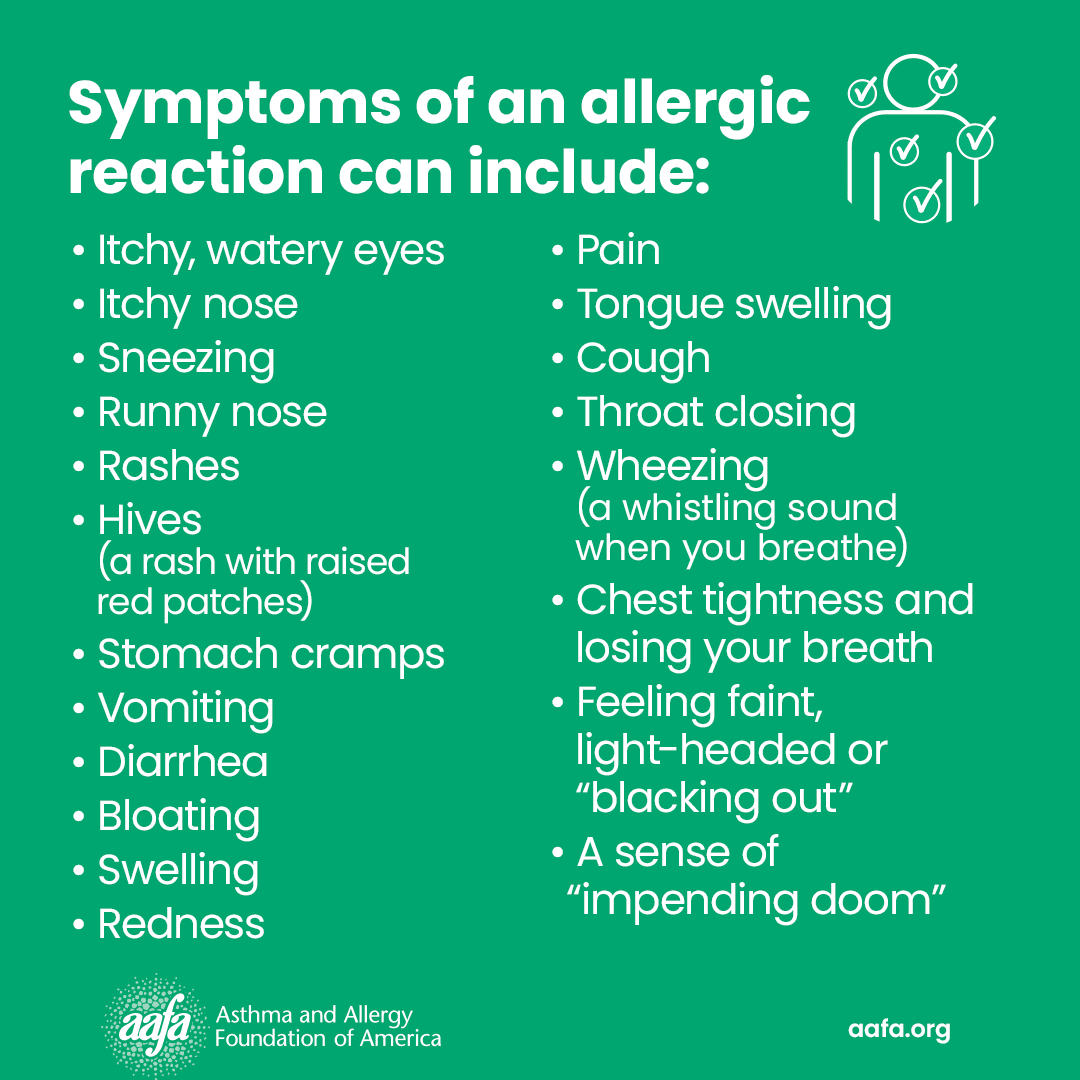Allergies
The Allergic or Atopic March
The allergic march is the name for the natural history of allergic diseases. It is also called the atopic march. This refers to how allergic diseases progress in a person over time. It usually starts in infants.
The genetic tendency to develop allergic diseases. This includes food allergy, allergic rhinitis, asthma, and atopic dermatitis (eczema).
Source: American Academy of Allergy Asthma Immunology
In asthma and allergies, the natural history tends to begin with dry skin and follows this course:
- Dry skin begins at birth
- Eczema (atopic dermatitis) – first few weeks or months of life
- Food allergies – first few months or years of life
- Rhinitis (nasal allergies) – after age 3
- Asthma – first few months to years of life

Infants born with dry skin are at risk of developing eczema (atopic dermatitis). Your skin is a barrier to protect you from infections and injury. When you have eczema, the skin barrier has cracks. This puts you at higher risk of infections. It also allows substances to get in past the outer layer of skin. Scientists think this may be what leads some children to develop food allergies. When a baby’s open/cracked skin touches food (like peanut, egg, cow’s milk), their immune cells may respond and overreact to the food.
Babies and young children may also experience wheezing related to viral infections. This can progress into asthma.
Allergic diseases can have a negative impact on a person’s quality of life. In some cases, they can be serious and even life-threatening.
Atopic triad: eczema, allergies, and asthma often occur together
Can You Stop or Prevent the Allergic March? Can You Prevent Asthma, Food Allergy, or Eczema From Developing?
Early prevention measures may help reduce the chance of developing a disease before it starts. A “primary prevention” is when an intervention aims to prevent the development of a disease.
Research is underway to see if there are ways to stop the allergic march. Children with a family history of any allergic disease are at risk of having asthma, allergies, or eczema. But there may be ways to prevent a child from developing allergic diseases. Studies show that the following steps may be protective:
- Feeding 4- to 6-month-old babies peanut powder or diluted peanut butter cuts the risk of peanut allergy by up to 80%.1 Feeding young babies common food allergens teaches their immune system to tolerate the food. Guidelines in the U.S. recommend giving babies solid foods at an early age to prevent food allergy. There is increasing evidence that early food introduction may help lower the chance of food allergy later in life.
- Avoiding tobacco smoke, pollution, and certain viruses (such as RSV) may help prevent asthma.2,3,4
- Breastfeeding supports lung growth and reduces respiratory infections. There is some evidence this may be one way to cut asthma risk for young children.5
- Dust mite allergy is a predictor of asthma and atopic dermatitis in children. Eliminating dust mites from your home may prevent dust mite allergy, which then may help prevent asthma or atopic dermatitis.6
Initial research trials showed that applying proper skin moisturizers to a baby’s skin (starting at birth) is a safe and effective approach to prevent eczema.7 But more recent research found no evidence that daily moisturizers during the first year of life could prevent eczema in infants at risk for this disease.8 It is unclear if routine skin care reduces the risk of food allergy.9
Researchers continue to study ways we can prevent eczema, allergies, and asthma.
Medical Review: June 2022 by John James, MD
References
1. Addendum Guidelines for the Prevention of Peanut Allergy in the United States Report of the NIAID-Sponsored Expert Panel. (n.d.). In National Institute of Allergy and Infectious Diseases. https://www.niaid.nih.gov/sites/default/files/addendum-peanut-allergy-prevention-guidelines.pdf
2. Centers for Disease Control and Prevention. (2020, February 27). Fact Sheet – Health Effects of Secondhand Smoke – Smoking & Tobacco Use. Smoking and Tobacco Use; CDC. https://www.cdc.gov/tobacco/data_statistics/fact_sheets/secondhand_smoke/health_effects/index.htm
3. The Links Between Air Pollution and Childhood Asthma. (2018, October 22). United States Environmental Protection Agency. https://www.epa.gov/sciencematters/links-between-air-pollution-and-childhood-asthma
4. Zimlich, R. (2019, September 3). Is There a Link Between RSV and Asthma Development?Contemporary Pediatrics. https://www.contemporarypediatrics.com/view/there-link-between-rsv-and-asthma-development
5. Miliku, K., & Azad, M. (2018). Breastfeeding and the Developmental Origins of Asthma: Current Evidence, Possible Mechanisms, and Future Research Priorities. Nutrients, 10(8), 995. https://doi.org/10.3390/nu10080995
6. Miller, K. E. (2003). Prevention of Dust-Mite Sensitization in Children. American Family Physician, 67(3), 633–634. https://www.aafp.org/pubs/afp/issues/2003/0201/p633.html
7. Simpson, E. L., Chalmers, J. R., Hanifin, J. M., Thomas, K. S., Cork, M. J., McLean, W. H. I., Brown, S. J., Chen, Z., Chen, Y., & Williams, H. C. (2014). Emollient Enhancement of the Skin Barrier From Birth Offers Effective Atopic Dermatitis Prevention. Journal of Allergy and Clinical Immunology, 134(4), 818–823. https://doi.org/10.1016/j.jaci.2014.08.005
8. Chalmers, J. R., Haines, R. H., Bradshaw, L. E., Montgomery, A. A., Thomas, K. S., Brown, S. J., Ridd, M. J., Lawton, S., Simpson, E. L., Cork, M. J., Sach, T. H., Flohr, C., Mitchell, E. J., Swinden, R., Tarr, S., Davies-Jones, S., Jay, N., Kelleher, M. M., Perkin, M. R., & Boyle, R. J. (2020). Daily Emollient During Infancy for Prevention of Eczema: The Beep Randomised Controlled Trial. The Lancet, 395(10228), 962–972. https://doi.org/10.1016/s0140-6736(19)32984-8
9. Does Moisturising Baby Skin Prevent Eczema or Food Allergies?(n.d.). Cochrane. Retrieved June 28, 2022, from https://www.cochrane.org/news/does-moisturising-baby-skin-prevent-eczema-or-food-allergies










